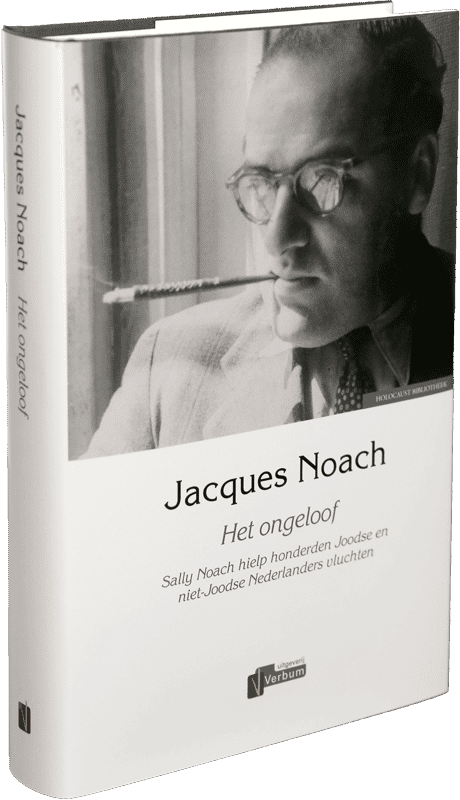Sally Noach
Disbelief
Sally Noach helped hundreds of Dutch Jews and non-Jews reach safety
A book by Jacques Noach
Loved by the Dutch Royal Family. Reviled by the civil servants of the Dutch Ministry of Foreign Affairs.
Sally Noach saved hundreds of lives during World War II but never received government recognition for his deeds. On his escape to England, he was held at the Dutch consulate in Lyon, France, where he acted as a translator. From here, Sally helped hundreds of Dutch refugees (Jews and non-Jews) flee to Switzerland and Spain, after which these refugees joined the allied forces in England.
The Dutch government felt that the ‘uncivilised’ diplomat needed to comply more with the (German and Vichy-French) rules. The high class and often anti-semitic members of the Dutch diplomatic service didn’t naturally gel with Sally Noach, an uneducated seller of carpets.
Sally’s son Jacques Noach (London, 1946) carried out extensive research into the ‘Sally Noach File’ and discovered some shocking revelations about the ‘support’ the London-based Dutch government provided to Dutch refugees. If it had been down to the Dutch civil servants, all Dutch refugees would have immediately been sent back from France to occupied Holland. There were also clear signs of a ‘politically correct’ form of antisemitism. Sally was discredited by the Dutch government and referred to as ‘uncivilised’. The Dutch Consul-General in France, Ate Sevenster articulated it clearly: “Jewish refugees are the lowest class.”
In 1969, Sally Noach was awarded the Royal Dutch Honorary Cross by Queen Juliana and Prince Bernhard. From the Dutch government however, Sally received only contempt. He published his war memoirs, titled “It had to be done” in 1971. Those memoirs have been included within this book.
Belangrijk nieuws
About this website
sallynoach.com was launched to support the book I have published about my father Sally Noach, called Het ongeloof (“Disbelief”). In the book I often refer to letters and documents that show the number of people my father has helped on their way to freedom from Lyon (France) from September 1940 - September 1942. The website contains numerous letters, book references and newspaper articles which mention my father, as well as pictures from a photo album which he kept during his period in London (1943 – 1945). The ‘Capita Selecta’ section captures short stories of people who my father encountered during the war. Naturally, I would very welcome any suggested additions or improvements to the content on the site.
Abcoude, March 2022
Jacques Noach
Jacques Noach is the eldest son of Sally Noach and Annie Visser. He was born in London in 1946 and after university, worked as an accountant. Following his father’s death in 1980, Jacques reviewed his father’s archive (documents, letters and pictures) which he then donated to the NIOD - The Institute for War, Holocaust and Genocide Studies in Amsterdam. Jacques had two children with his late wife Betty Corper and subsequently married his childhood sweetheart Marion Loewenstein. Between them they have six grandchildren. Jacques has been awarded the French ‘Chevalier dans l’Ordre National de Mérite’.

Translation: Nathalie Noach, Marc Abraham Website: Michael van Praag
